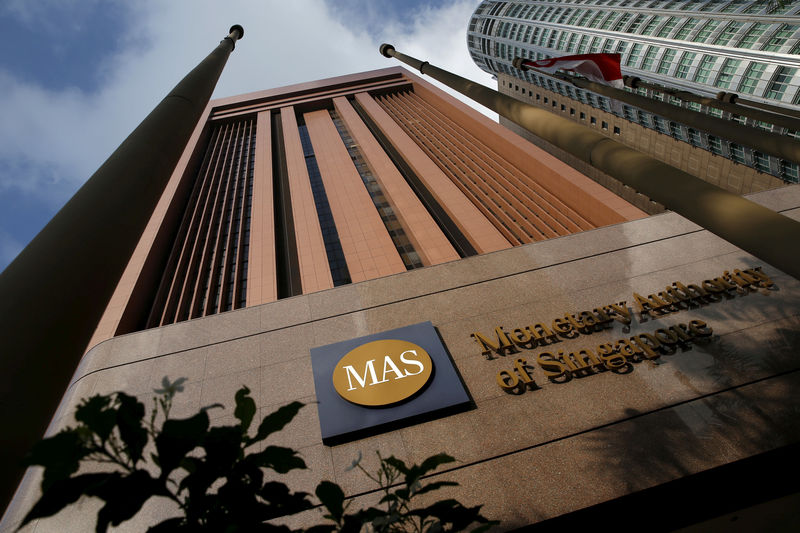By Ambar Warrick
Investing.com-- Singapore’s economy expanded far more than expected in the third quarter, data showed on Friday, as a boost from construction activity and steady consumer spending helped offset a decline in the country’s key manufacturing sector.
The Monetary Authority of Singapore (MAS) also tightened monetary policy for the fifth time in a year, as it struggles to control rising inflation. The financial authority said in a statement it will raise the range within which the Singapore dollar is allowed to move against foreign currencies, and that more tightening was warranted to keep inflation on a leash.
Singapore’s gross domestic product rose 4.4% on an annual basis in the three months to Sept 30, data from the Ministry of Trade and Industry showed, far more than expectations for growth of 3.4%. The reading was slightly lower than last quarter's reading of 4.5%.
The economy also expanded 1.5% from the previous quarter, a reversal from the 0.2% contraction it experienced in Q2. The Singapore dollar reacted positively to the data, rising 0.4% in morning trade.
The data shows that the Singapore economy has persevered despite headwinds from rising commodity imports and elevated inflation. A large part of this is due to the lifting of COVID-related restrictions on movement across borders.
Easing restrictions helped the movement of migrant workers into the island state, in turn benefitting construction activity. This also factored into strong consumer spending.
Services industries grew over 6% in the quarter, with the biggest boost coming from spending on accommodation and food services.
Spending on food, particularly restaurants, also recovered sharply from COVID-linked disruptions seen last year.
While growth in the manufacturing sector declined sharply, strength in trade helped bolster the island state’s economy. Exports of machinery and industrial equipment remained steady through the quarter, jumping a bigger-than-expected 11.4% in August from last year. The sector is expected to remain steady in September.
Still, Singapore is struggling with high inflation levels, amid headwinds from rising commodity prices and supply chain issues. The MAS forecast core inflation will average around 4% this year, compared to a 5.1% reading in August.
